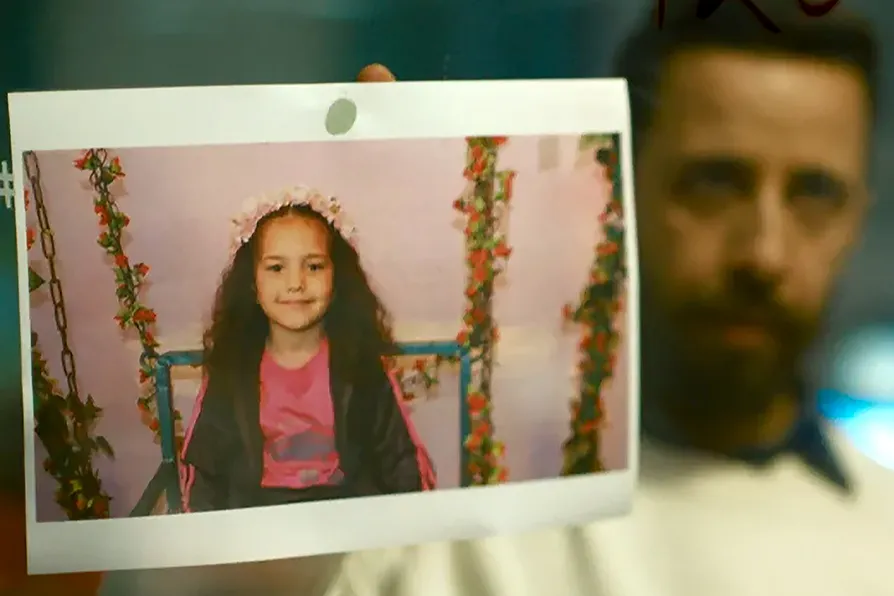RITA DI SANTO draws attention to a new film that features Ken Loach and Jeremy Corbyn, and their personal experience of media misrepresentation
Error message
An error occurred while searching, try again later.Featuring films with substantial political themes, this year’s festival has ignited a vibrant discussion, suggests RITA DI SANTO

 Motaz Malhees in 'The Voice of Hind Rajab.' [Pic: MIME FILMS, TANIT FILMS]
Motaz Malhees in 'The Voice of Hind Rajab.' [Pic: MIME FILMS, TANIT FILMS]
THE 82nd Venice Film festival wrapped Saturday with the Golden Lion awarded to Jim Jarmusch’s Father Mother Sister Brother.
Here Jarmusch delves into the intricate family dynamics across three different cities: New Jersey, Dublin and Paris. All the family members are American and Jarmusch’s direction remains as cool as ever, but at times, the acting feels somewhat stiff. The film offers a fascinating study in repetition, with water serving as the recurring element that connects the three stories. This repetition and routine create a sense of rhythm and depth throughout the storytelling.
To the disappointment of many, Kaouther Ben Hania’s The Voice of Hind Rajab was awarded the Grand Jury Prize (the second prize). A docu-drama that reconstructs the last moments of five-year-old Hind Rajab, trapped in a car in Gaza, surrounded by her deceased family members, while Israeli soldiers shoot outside, the film made a profound impact at the festival and received a 24-minute standing ovation, with the audience chanting “Free Palestine.”
The film incorporates real audio from Hind’s desperate call to the Palestinian Red Crescent, who cannot dispatch an ambulance without Red Cross approval, which requires Israeli government consent; this bureaucracy delays the rescue, while Hind’s small voice pleads, “I’m so scared, please come!” and the ambulance is only eight minutes away.
Ben Hania’s restrained style allows silence and sound to convey the emotional weight, making the film a poignant exploration of war and human suffering. The film transcends the screen, highlighting the human cost of conflict and emphasizing the importance of giving a voice to war victims. It cuts through the numbness caused by constant media exposure that exploits conflicts and children’s bodies to sell news.
This movie humanises victims, connecting the audience with the souls of suffering children. A powerful, haunting film like never before.
Winner of Best Actress was Chinese actress Xin Zhilei for her outstanding performance in Cai Shangjun’s The Sun Rises On Us All. A moral tale of love and redemption set in Guangdong province, this thought-provoking film explores the complexities of human relationships in modern China: the struggles of individuals seeking connection in a rapidly changing world.
Shangjun’s characters embody this search for hope and redemption as they face numerous challenges with an uncertain future.
Toni Servillo won best actor for his role in Paolo Sorrentino’s La Grazia. The film tells the story of Italian President Mario De Santis, who grapples with moral dilemmas surrounding euthanasia and the pardoning of two individuals convicted of murder. It examines themes of love, responsibilities and the human complexities of human decision-making.
Another president at the festival was in Kathryn Bigelow’s gripping nuclear thriller A House of Dynamite. The story revolves around a high-stakes scenario where the US faces an unprovoked single missile strike from an unidentified enemy, prompting the president to make a life-or-death decision about retaliation and potentially sparking World War III.
The film’s pacing is relentless, making it both entertaining and thought-provoking. Bigelow’s precision-tooled direction produces a visceral tension, and her ability to turn hypotheticals into narrative has never been more poignant.
A disappointment was to see South Korean film-maker Park Chan-Wook go away empty-handed. No Other Choice, based on Donald E Westlake’s 1997 novel The Ax, is a poignant satire on the chaotic job market. A middle-aged man has worked for a paper manufacturer for 25 years, living happily with his family, until he is abruptly fired following a takeover by a US company.
His life spirals as finding another job seems impossible, and after 13 months he devises a desperate plan, resorting to violence to provide for his family.
Park Chan-Wook’s return showcases a renewed style, as provocative as ever. His film-making vividly portrays the capitalistic dynamics of our modern world, revealing desperation and moral compromises. His vivid visuals and bold cinematography add depth to the narrative, immersing the audience in an unpredictable and fascinating world.
Other notable films at the Venice Film festival included Silent Friend by Hungarian director Ildiko Enyedi. It centres on a majestic ginkgo tree in a German university botanical garden, witnessing the transformation of three human lives across different eras: 1908, 1972 and 2020. The three stories intertwine beautifully, blurring time and space, with the tree as the sole connection.
Enyedi’s ability to convey complex emotions without dialogue, using silence to speak volumes, is striking. The performances are breath-taking, bringing authentic, relatable characters to life. Silent Friend is a testament to film-making’s art, transcending language and cultural boundaries. A film that touches hearts and minds.
Also, The Testament of Ann Lee by Mona Fastvold, is a religious musical about Ann Lee, known as Mother Ann, the founding leader of the Shakers. In her tragic life, Ann Lee and a small group of followers emigrated from England to New York in the 16th century.
Director Mona Fastvold’s uncompromising storytelling brings Ann’s world to life with visceral intensity. The depiction of Ann’s hardships, including the loss of four infants and her struggles with the church, is both unflinching and deeply moving. This movie serves as a feminist manifesto about women’s conditions in the 16th century, denouncing the hardships of childbirth, violence and abuse against women, with devotion to God as the only escape from misery.
The Venice Film Festival has reaffirmed its status as a stage for cinematic excellence, innovation and artistic expression. This year’s festival gave prominence to films with substantial political themes, exploring the complexities of morality and power. This year’s festival has ignited an especially vibrant discussion.










